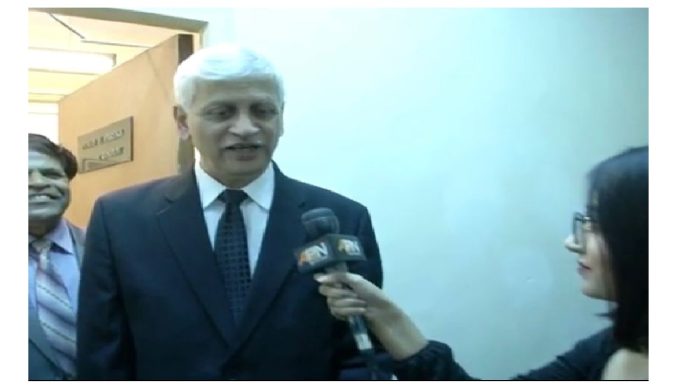The former Chief Justice of India Justice Uday Umesh Lalit has said that there is no better system available at present to appoint judges than the existing collegium system.
The former Chief Justice of India Justice Lalit was speaking at a seminar that was organised by the Campaign for Judicial Accountability and Reforms (CJAR), where he elaborated on level of screening scrutiny and consultations which have to be undertaken in the process of judges appointments and called it a near perfect model.
The Former CJI also laid emphasis n the point that the judges are best persons to decide if the candidate is worthy of appointment.
The former Justice said that we do not have a system that can be better than the collegium system and added that if we don’t have anything qualitatively better than the collegium system, we must work towards making it possible that this collegium system survives.
Today the model as per which we work is a near perfect model”, Justice Lalit said.
The comments by the retired Chief Justice of India hold a special relevance in the context of the ongoing debates about the collegium system, after the critical comments made by Union Law Minister and the Vice President.
Justice Lalit was speaking on the subject with his experience as a member of the collegium.
Justice Lalit added that recommendations are filtered through selection process which comprises inputs from the levels of the state government and central government.
He also apprised that the Supreme Court collegium gives weightage to consultations with the judges in the Supreme Court who are familiar with that particular High Court.
Explaining the system , the justice said that after the rigorous process when names are cleared, they go to central government. He added that the inputs given are actually taken on account at earlier level but they may have something to elaborate upon.
He added that the objections normally should come back to collegium to reconsider. He agreed in the initial level the recommendation made by the Apex Court need not be unanimous. It could be by majority vote. But reiteration has to be unanimous. Justice Lalit said that the judiciary is in a better position for judging the merits of the candidates after having seen them performing over the years. The executive may not be in position to make such an assessment.
Justice UU Lalit said that the professional practice of the candidate, the cases he conducts, the number of reported judgments, etc. are some of the points taken into account. He mentioned that while considering a candidate, about 1100 judgments authored by him were considered.
He further added how the income parameter is also taken into account to ensure that persons with professional competence are considered.
Justice Lalit said that how will someone sitting here will have the knowledge to select a judge in another part of the country? somewhere else? A for knowing them, one needs to have local inputs which come from there. You must know if the advocate is good or not.The judges are best persons to decide if the man commands that kind of respect.
Justice UU Lalit said time and again the model which is currently been in use is a near perfect model with some infirmities.
While concluding his speech Justice added that due to this impeccable system they have been able to have judges for many years. Once the law has been laid down, there should be no judicial interference on this. Whatever be the objections, they must be raised as early as possible, preferably within 6 weeks.
Senior Advocates Aditya Sondhi, Dushyant Dave, Professor Faizan Mustafa and Professor Mohan Gopal also spoke during the first session of the seminar which was on the topic “Executive Interference in Judicial Appointments”. Advocate Prashant Bhushan gave introductory remarks for the session. Advocate Cheryl Dsouza was the moderator for the session.


